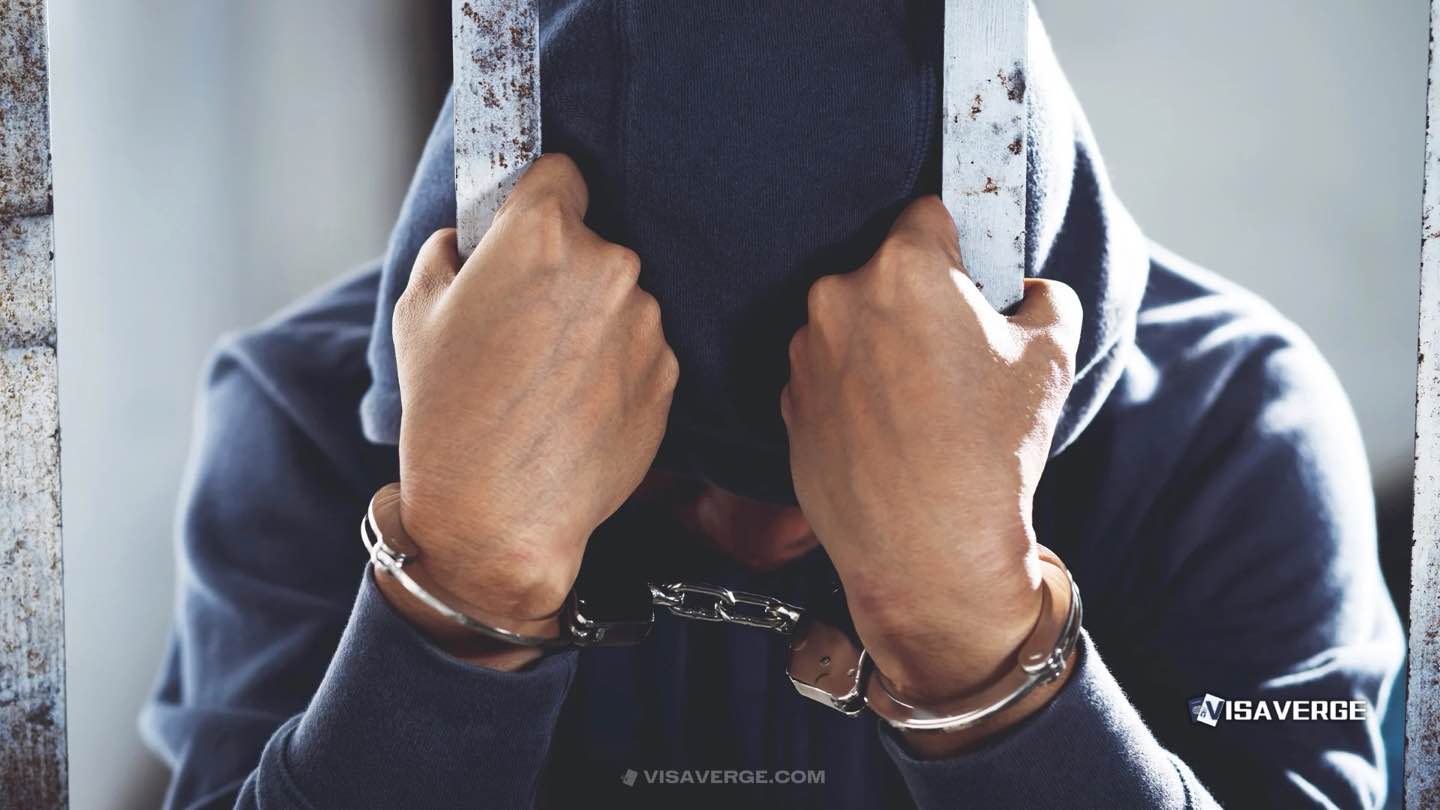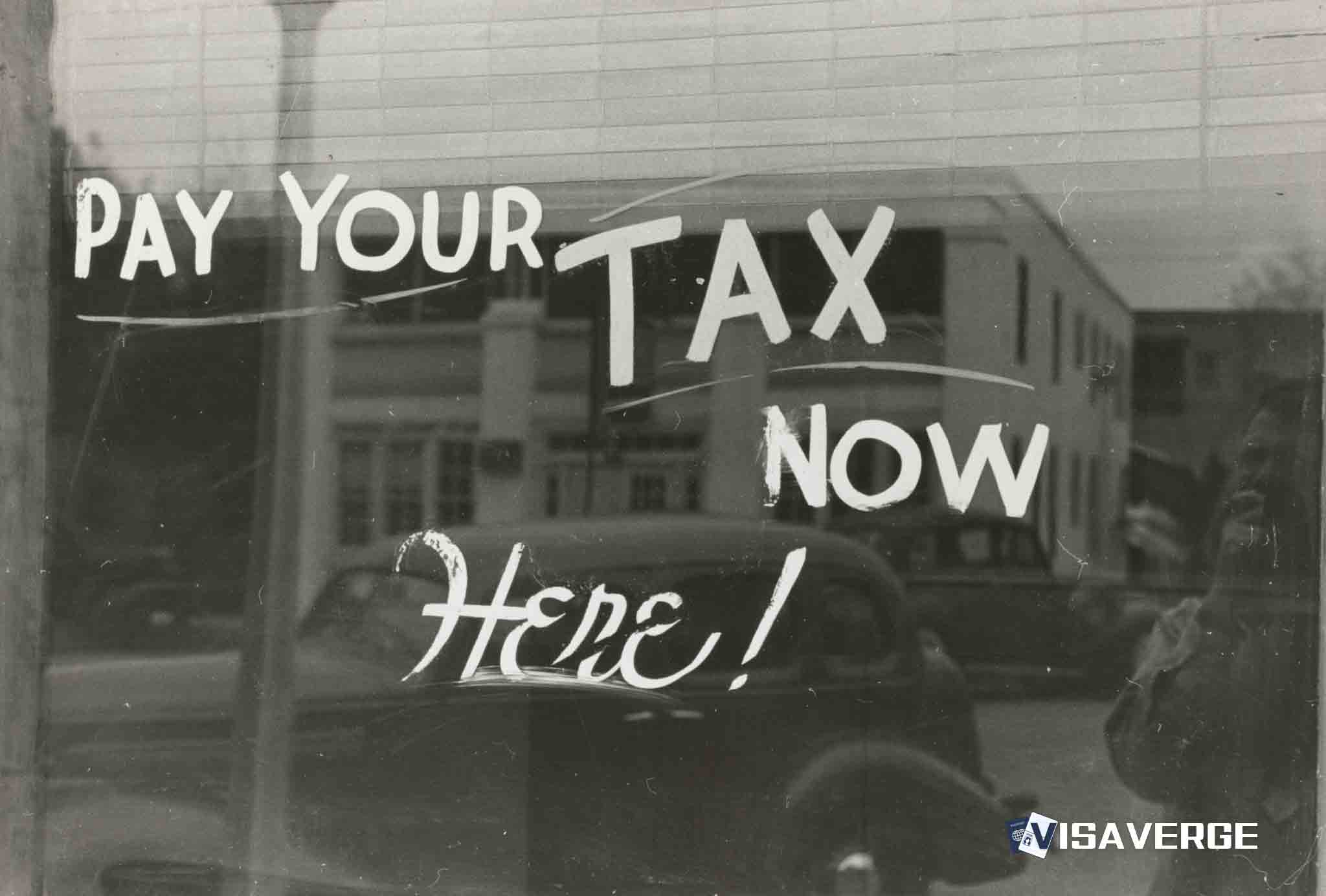Key Takeaways
• The 4th Circuit Court upheld a judge’s order to bring Daniel Lozano-Camargo back from El Salvador.
• The Alien Enemies Act, used by Trump, fast-tracked deportation of 130+ Venezuelans, including minors.
• The Supreme Court is reviewing deportation notice rules for asylum seekers under the Alien Enemies Act.
A recent federal court decision could change how the United States 🇺🇸 treats certain deportations, especially regarding Venezuelans sent out of the country during President Trump’s term. The ruling centers on Daniel Lozano-Camargo, a man from Venezuela who was one of many sent back under a law called the Alien Enemies Act. This case has brought new attention to the use of old laws, the rights of people seeking safety in the United States 🇺🇸, and the way U.S. immigration policies impact real lives.
Background: The Alien Enemies Act

The Alien Enemies Act is not a new law. It dates back to 1798 and was designed for times of war, allowing the U.S. government to act quickly in removing people considered “enemies” when their home country is at odds with the United States 🇺🇸. While rarely used in modern times, President Trump invoked this law to expedite the deportation of over 130 Venezuelans. The administration said many of these individuals had connections to gangs, but immigration advocates have challenged whether the law was used fairly.
Daniel Lozano-Camargo’s Deportation
Daniel Lozano-Camargo’s situation exemplifies the impact these decisions can have on individuals. Known as “Cristian” in public court papers, Lozano-Camargo was not sent back to Venezuela 🇻🇪, but to El Salvador 🇸🇻 in March 2025. This decision was part of a broader operation, as the Trump administration rushed to deport Venezuelans in early 2025 using the Alien Enemies Act.
A key point in this story is that Daniel Lozano-Camargo was covered by a 2024 legal settlement protecting asylum seekers who entered the United States 🇺🇸 when they were still minors. According to the settlement, these individuals should have certain rights and protections, including the right to fully present their case before being removed. However, Judge Stephanie Gallagher, the federal judge handling his case, recognized that those protections were not given to Lozano-Camargo before his deportation.
The Legal Battle: Appeals Court Steps In
Once the problem with the deportation was clear, Judge Gallagher—who was appointed by President Trump—ordered the government to bring Lozano-Camargo back to the United States 🇺🇸. Her order stated that federal officials must do everything possible to help Lozano-Camargo return, including reaching out to authorities in El Salvador 🇸🇻.
However, the Justice Department argued that Judge Gallagher had overreached her power. They said she should not force U.S. officials to speak with another country’s government. This led to the case moving up to the 4th Circuit Court of Appeals.
The appeals court weighed in, and in a 2-1 decision, said Judge Gallagher acted within her authority. The majority opinion, written by Judge Andrea, clarified that the administration must indeed communicate with El Salvador 🇸🇻 to facilitate the release and safe return of Lozano-Camargo. This outcome was seen as a strong message about the importance of following settlements and the proper steps laid out for asylum seekers.
Broader Impact: Similar Deportations, International Attention
The fight over Daniel Lozano-Camargo’s return is not the only case raising eyebrows. Around the same time, Kilmar Abrego Garcia faced a similar fate. His deportation sparked international concern, especially since the U.S. government admitted his case was mishandled—his removal went against a decision made by an immigration judge back in 2018.
Yet, despite this acknowledgment, President Trump’s administration has been slow in helping bring Abrego Garcia back from El Salvador 🇸🇻. Both cases underline a wider struggle about how U.S. immigration policy is enforced and what happens when errors occur.
The Supreme Court’s Involvement and Ongoing Legal Challenges
This latest appeals court decision also comes as the highest U.S. court—the Supreme Court—is weighing related issues. On May 16, 2025, the Supreme Court sent a similar case back to another court (the Fifth Circuit) for more review. At stake is whether the U.S. government can summarily deport Venezuelans under the Alien Enemies Act, and how much warning people must get before being removed.
The question is important because how much notice someone gets can affect their ability to challenge deportation, gather evidence, or get legal help. If the law allows for very little warning, many people might not have a real chance to defend their cases. As reported by VisaVerge.com, court decisions on these topics could set new standards for future deportations.
Legal Settlements and Rights of Asylum Seekers
The 2024 settlement at the center of Daniel Lozano-Camargo’s case highlights protections for asylum seekers, especially those who entered as minors. The government agreed that these individuals should have access to the court, get a fair hearing, and not be quickly removed without a proper chance to explain their fears and present evidence.
When people are deported against the terms of such settlements, it raises questions about accountability. Who is responsible when mistakes are made? Can those sent away come back if the court orders it? In Daniel Lozano-Camargo’s case, the appeals court said yes: the government must try to fix the error by helping to bring him back.
Roles of the Courts: District, Appeals, and Supreme
The U.S. legal system is made up of several layers. Judge Stephanie Gallagher is a district judge, which means she handles hearings and trials. But her orders can be appealed, as happened in this case, bringing the matter up to the 4th Circuit Court of Appeals. The appeals court reviews whether the lower court’s decisions were fair and lawful.
Here, two out of three appeals judges supported Judge Gallagher’s approach. They said it was proper for her to require federal agencies to reach out internationally if that’s what’s needed to fix the error. The dissenting judge in the panel did not agree, believing the judge went too far. However, the majority opinion ruled the day.
Above the appeals courts sits the Supreme Court. When the Supreme Court reviews or returns cases to lower courts, as it did on May 16, 2025, it can reset or clarify the rules for everyone in the nation.
International Coordination: Challenges in Practice
Telling officials to “bring someone back” sounds simple, but in practice, it can be difficult. If a person has been deported to a third country like El Salvador 🇸🇻, U.S. authorities usually must work with local governments. This means contacting officials, arranging travel, and sometimes coordinating with airlines, lawyers, and even family members.
In Daniel Lozano-Camargo’s case, Judge Gallagher’s order included instructions for U.S. officials to communicate directly with their Salvadoran counterparts. The appeals court backed this up, making clear that if U.S. actions led to a wrongful deportation, U.S. officials should use their influence and resources to help fix it.
Government Concerns: Limits of Judicial Power
Throughout the legal process, the Justice Department has worried about judges reaching too far into matters usually handled by the executive branch. Their argument is that immigration policy, especially involving foreign countries, should mostly be handled by the President and his team—not judges.
But the appeals court majority made clear that when the government violates its own agreements or the law, courts can step in and order real solutions. The court’s decision creates a possible way forward when errors occur, showing that courts can do more than simply point out mistakes—they can require action to correct them.
Impacts and Reactions
For Venezuelan nationals who faced removal under the Alien Enemies Act, these recent court decisions offer hope. The government must now look closely at how deportations are handled, especially when there are legal protections in place. Immigration lawyers have said the case could set a strong example about upholding settlements and court processes, even during emergencies or under laws written during wartime.
Supporters of tough immigration enforcement, however, may disagree, saying judges should not force the administration’s hand in international matters. This ongoing debate is likely to continue as courts, agencies, and lawmakers react to each new case.
The Human Cost: Real People at the Center
It’s important to remember that behind each case and legal battle are real people, families, and sometimes communities torn apart by quick removals. Daniel Lozano-Camargo’s journey reflects the challenges faced by many asylum seekers who arrive as minors, hoping for safety but facing a complex and sometimes harsh system.
When the courts order returns after wrongful deportations, it means more than just paperwork and plane tickets. It’s a recognition that errors can upend lives, and fixing those mistakes takes cooperation at the highest levels.
Next Steps: What Happens Now?
Now that the appeals court has made its decision, the government is required to contact El Salvador 🇸🇻 and try to bring Lozano-Camargo home. This will involve coordinating with both U.S. and Salvadoran officials, and may set the pattern for handling other wrongful deportations revealed by court cases.
Meanwhile, the Supreme Court’s pending decisions—including the question of notice before deportation under the Alien Enemies Act—are likely to shape procedures across the immigration system. If the Supreme Court demands more warning or fewer “summary” removals, it could give migrants a stronger chance to argue their cases.
Looking Ahead: The Lasting Impact
The appeals court decision in favor of Daniel Lozano-Camargo stands as a reminder that the courts can play a strong role in reviewing immigration actions, ensuring rights are respected even under old or unusual laws like the Alien Enemies Act. With international partnerships and legal settlements intersecting, the landscape of U.S. immigration law is evolving.
For those interested in following these changes or learning more about the rulings and laws involved, the official U.S. Courts website provides updates on major decisions and the status of high-profile cases.
As VisaVerge.com’s investigation reveals, these cases will likely influence both policy and practice, shaping how the United States 🇺🇸 balances national security, individual rights, and its commitment to fairness within the immigration system.
In summary, the ruling from the 4th Circuit Court of Appeals does not just address the situation of one Venezuelan national—it touches on bigger questions about the power of old legal tools like the Alien Enemies Act, the responsibilities of the government to correct its mistakes, and the ongoing struggle to ensure that immigration law serves justice, not just politics. Everyone from asylum seekers and their advocates, to policymakers and international partners, will be watching the next developments closely.
Learn Today
Alien Enemies Act → A 1798 U.S. law permitting fast deportation of nationals from enemy countries during wartime.
Asylum seeker → A person seeking protection in a country from persecution or danger in their homeland.
Appeals court → A higher court that reviews decisions made by lower courts for fairness and legality.
Deportation → The formal removal of a foreign national from a country back to their home nation.
Legal settlement → An agreement resolving a legal dispute without further court proceedings.
This Article in a Nutshell
A federal appeals court ruled to return Daniel Lozano-Camargo to the U.S. after wrongful deportation under the Alien Enemies Act. This marks a legal victory for asylum seekers wrongly removed and challenges the rapid deportation policies used during the Trump administration. The Supreme Court’s pending review may influence future immigration protections.
— By VisaVerge.com
Read more:
• Lehi immigrant families face new deportation fears as policies shift
• Pregnant Ohio mother files federal lawsuit to stop deportation to Mexico
• Temporary Protected Status Shields Thousands From Deportation
• Deportation process in Germany sees 20% rise as reforms take effect
• Artemis Ghasemzadeh Bill Targets Fast-Track Deportations







